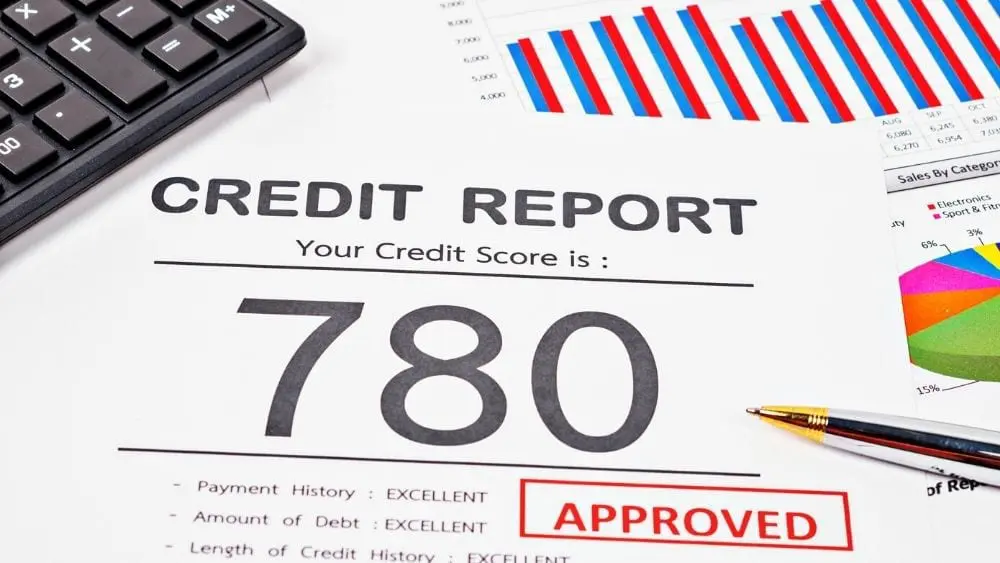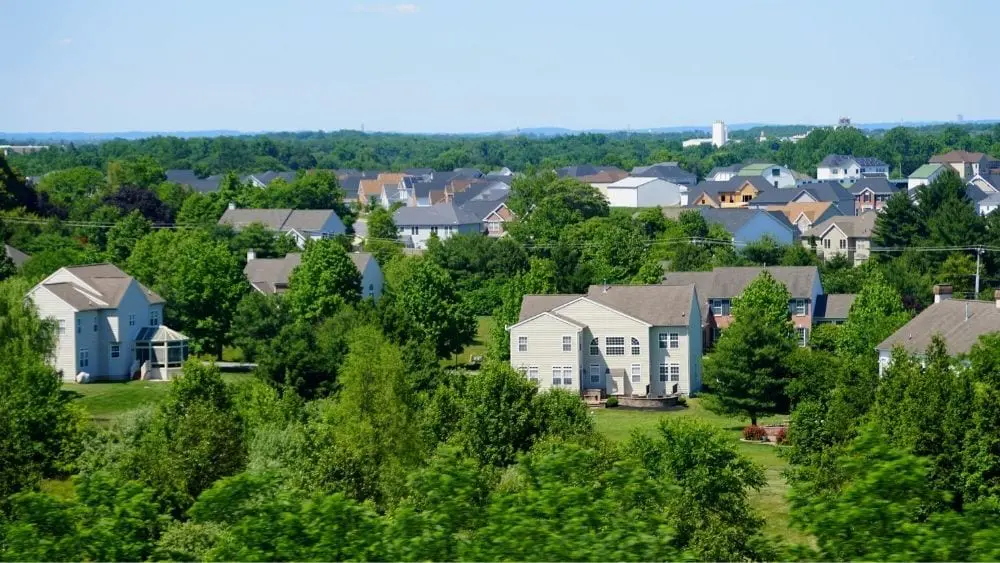
With affordable housing options, some of the lowest property taxes in the country, and picturesque views along the Atlantic coast, it’s hard to beat building a life in the beautiful First State. If you’re a homebuyer planting roots in Delaware, make sure you’re saving up not just for a down payment, but for closing costs, too.
While homebuyers whittle away at saving up a 20 percent down payment to buy their new home, closing costs are an often-overlooked expense. In fact, a 2017 poll found that 35 percent of Americans are caught off guard by how costly closing fees are. Another 17 percent didn’t even see this expense coming, according to the survey conducted for ClosingCorp, which researches residential data. Turns out, mortgage insurance, appraisal fees, title insurance, and taxes were some of the expenses that most surprised homebuyers.
In a nutshell, closing costs are an umbrella term, making up all the fees you’re responsible for paying before you get the keys to your new home. You need to pay your lender for arranging your mortgage, your attorney for drafting your offer letter and conditions of the home purchase, your insurance company for title and homeowner’s insurance – you get the idea.
Instead of paying each service provider one-by-one, these expenses are rolled together and paid for at once on closing day alongside your lump sum down payment. Closing costs usually end up being about two up to five percent of your home’s purchase price, making for one expensive day of spending.
So how much are closing costs in Delaware? Here’s our guide on how much you should plan on saving, what’s included in your tab, and how you can shave off thousands of dollars on this final expense in the homebuying process.
How Much are Closing Costs in Delaware?
Compared to other states, closing costs won’t break the bank for homebuyers in Delaware. Ranking right in the middle of the pack, Delaware is the 25th state with the highest closing costs in the country, at an average of $2,676 for homebuyers taking out a home priced at $240,483. That makes up 1.11 percent of the home price, according to a 2021 report by ClosingCorp.
This figure is likely going to be higher for most homebuyers, for several reasons. For starters, ClosingCorp’s 2021 estimates are based on a homebuyer applying for a 20 percent down payment, which eliminates the need for private mortgage insurance. PMI typically ranges from 0.25 percent to as high as 2.25 percent of your home loan, depending on the size of your down payment and your credit score. Other state-specific expenses aren’t included in this estimate.
Home values have also crept up in The First State: By June 2021, the average home price in Delaware was $340,000. If homebuyers earmark two to five percent of their home’s purchase price on closing costs, the estimates would be between $6,800 and $17,000.
It’s worth noting that ClosingCorp’s 2020 report on closing costs pegged Delaware’s average closing costs at $13,273.
For comparison’s sake, the national average for closing costs for the purchase of a single-family home was $6,087 in 2021, according to ClosingCorp.
If you’re curious, the states with the highest average closing costs were the District of Columbia, New York, Pennsylvania, Washington, and New Jersey, while those with the lowest were Missouri, Indiana, Arizona, Arkansas, and Iowa.
What’s Typically Included in Delaware Closing Costs?
Between mandatory requirements for a real estate attorney and some of the country’s lowest property taxes, Delaware has nuanced details when it comes to the state’s approach to closing costs. Here’s a closer look at the bill breakdown of closing costs, including who traditionally pays for what:
Loan origination fees
Your first stop in the homebuying process is your lender. Whether you’re working with a bank or a mortgage broker, one of the initial closing cost expenses you’ll incur is loan origination fees. They’re what your lender will charge to set up your loan application, from underwriting your loan, and checking your credit history to processing your funding.
Loan origination fees are typically about 0.5 to one percent of your loan amount. With average home prices at $340,000, loan origination fees could be about $1,700 to $3,400, depending on the price tag of the home.
Credit report fee

Before your lender decides you’re a responsible borrower, they’ll need to do a full credit check which includes pulling your credit score to have a clear snapshot of how you manage debt.
Expect your lender to pass along the cost of requesting your credit report onto you. This expense is typically $25, but if more than one borrower is involved on the mortgage application, double this cost.
Attorney fees
Here’s another quirk about closing costs in Delaware: it’s one of 20 states in which it’s mandatory to hire a real estate attorney, even if your home purchase is straightforward.
The state expects your real estate attorney to be on hand from the jump. Count on them to do a lot of heavy lifting with your home loan, such as assisting with working with your mortgage broker, drafting and reviewing purchase agreements, negotiating and finalizing the contract of sale, and certifying deeds and other legal documents. Your lawyer will even be present at closing to make sure the transfer of the deed and the closing of your mortgage run smoothly.
The cost for hiring a real estate attorney in Delaware will vary, depending on the complexities of the home sale and the amount of work involved. Typically, lawyers charge by the hour at $100 to $300 per hour, or a flat fee.
While it may seem like a costly endeavor, having a real estate lawyer on your side can provide you with peace of mind.
Escrow fees
While you’ve recruited the help of a real estate attorney to manage your closing, you still need to hire a title company to help with your escrow account.
Escrow is a financial arrangement where a neutral third party holds onto your funds in a separate account, so you aren’t paying your down payment, taxes, and other expenses until your home purchase is finalized. In this case, your title company will hold onto your funds until both parties have met all their conditions on the home sale.
Your title company is also another helping hand, guiding you through the checklist of things you need to have completed by closing.
This is typically another shared expense, split between the buyer and seller.
Delaware Real Estate Transfer Tax
Did you know homebuyers in all but 13 states must factor in “real estate transfer taxes” in their closing costs? While homebuyers in states like Alaska, Idaho, and Indiana are off the hook for this expense, Delaware residents need to cough up cash for this tax that’s paid to local and state governments.
The real estate transfer tax is tacked on when the seller transfers the home to the buyer. It can be called many things on your closing costs, such as a deed tax, mortgage registry tax, stamp tax, or real estate conveyance tax.
In Delaware, transfer taxes are typically four percent of the purchase price of the home – 2.5 percent goes to the state and 1.5 percent goes to the county. If your county doesn’t apply transfer taxes – and some don’t – the state raises its tax to three percent. If you’re a first-time homebuyer, there are state exemptions on the tax. Instead of paying 1.25 percent in tax, you’ll only be responsible for paying 0.75 percent on any property worth less than $400,000.
Across the board in Delaware, it’s routine to have the buyer and seller split this tax down the middle.
You may even be on the hook for a recording fee for this transfer of property, with some governments charging by the page for updating records. Earmark about $50 to $100 for this recording fee, although in some cases it won’t be that much.
Property Taxes
Property taxes are just one of the many expenses you’ll have to factor into your budget, as well as homeowner’s insurance and HOA fees.
Delawareans catch a lucky break on their property taxes, though. The state has some of the nation’s lowest property tax rates at around 0.43 percent to 0.57 percent of your property’s assessed market value annually. If your home is $249,000 and you’re paying 0.43 percent, your property taxes would be just $1,078 per year.
For comparison’s sake, New Jersey has some of the nation’s highest property taxes at 2.49 percent. On a $217,500 home, you’d be paying $5,419 annually, which is a big difference.
Count on paying for this expense, prorated, at closing, and then annually each April.
Title Search and Title Insurance
A crucial task for your title company is to execute a title search. Your title company will conduct a thorough background search dating back to the past few decades on the land your potential new home sits on to make sure the property you’re buying has no liens or lawsuits in progress. This way, you’ll know you’re going to own the land free and clear.
This is an essential step whether you’re buying a new build or an existing home. It’ll cost you about $300 or more, depending on the complexity of the research.
Once your title company completes this step, you’ll need to safeguard your investment with title insurance. It’s one of many insurances your lender will require you to purchase before they fund your home loan. Title insurance covers your back in case the title search misses something.
It comes with a price tag of roughly $3.50 for every $1,000 of your home’s purchase price.
Homeowner’s insurance
Before closing, you need to purchase a homeowner’s insurance policy for the upcoming year. Home insurance is a mandatory purchase; your lender will require you to buy this before transferring your mortgage.
This is a “prepaid” expense, meaning it must be paid for in cash and can’t be rolled into your home financing.
Home insurance is crucial to have in effect at closing when you take ownership because it’ll cover any physical damage to your home caused by fire, wind, vandalism, or theft. It will give you and your lender peace of mind. Make sure you stay on top of your coverage and make changes to your policy as needed.
Keep in mind, Delaware’s coastal communities are vulnerable to frequent flooding. You may need to take out extra insurance policies to cover natural disasters that aren’t included in your standard home insurance policy.
HOA fees
Homeowners’ Associations are popular in The First State, with some estimates pegging 42 percent of Delaware’s homeowners living in HOA communities.
With this statistic in mind, there’s a good chance you’ll need to pay for prorated HOA dues at closing, too.
HOA fees cover the cost of the various amenities provided by your neighborhood, such as clubhouses, pools, community parks, and fitness centers. They also account for keeping the community running with trash removal, security, and fire alarm systems. The more elaborate your HOA is, the more you should expect to pay.
At closing, your seller will pay their share of outstanding balances to the HOA, then transfer the membership to you. If you’re moving into a new home and new housing community, your builder may introduce you to the HOA, showcasing all the included amenities.
Your job is to ask about HOA fees upfront when you’re shopping for a home.
Surveying Fee and Flood Certification

ClosingCorp says Florida and Texas are the only states in which land surveys are mandatory for single-family homes. But some lenders in Delaware may insist on hiring a property surveyor to check on the home’s boundaries. It may even be a mandatory step before issuing your loan.
Count on spending about $500 for this step.
Some lenders in Delaware may request a flood certification, too; this is a document that verifies if the property is in a flood zone or not. Add another $50 to your tab if you’re asked to present this certificate by closing.
Appraisal
Another major checkpoint you’ll need to clear before your lender decides it’s safe to transfer your home loan is the appraisal. No matter where you are buying, your mortgage hinges on a successful appraisal.
Before closing, your lender will send a third-party appraiser to your new home to make sure it’s priced at the right value. If you can’t keep up with your mortgage payments and your lender needs to foreclose on your home, they need to know they can sell the property to make up for the outstanding balance.
The appraiser will scan the home, its size, its features, its condition, and how it stacks up to homes priced similarly in the community, to determine its fair market value.
While you’re waiting with bated breath on feedback from the appraiser, you’re also on the hook for their bill. Because your lender usually orders the appraisal, consult with them about how much it will cost.
Home Inspection
Termites, septic systems, structures, and systems – a detailed home inspection is your guardian angel before you make the biggest purchase of your life.
Your lawyer may insist on hiring a home inspector, while your lender may demand it. Either way, it’s in your best interest to bring in a professional home inspector who will check on the health and safety of your potential new home. This way you will know if everything is in good running order, from the foundation to the roof, to the water pipes, and everything in between.
Your home inspector will also point out any existing issues or ones that may surface in the coming years, such as replacing appliances or what may become a leaky roof in two years. This is great intel because you can ask the seller to make any fixes before finalizing the deal.
Depending on the size of your new home and its location, your home inspector may charge you from $500 up to $1,000.
Private Mortgage Insurance
If you aren’t providing a 20 percent down payment, your lender will expect you to buy private mortgage insurance. PMI allows borrowers to qualify for a conventional loan even if they put down only five to 19.99 percent of their mortgage.
While you’re the one paying for the insurance, the coverage is for your lender; because you haven’t put down 20 percent, PMI protects your lender in case of loan default.
This amount isn’t included in the ClosingCorp tally of closing costs expenses, but PMI typically ranges from 0.25 percent to as high as 2.25 percent of your outstanding loan balance, depending on the size of your down payment and credit score.
How Can I Lower my Closing Costs in Delaware?

Between saving up for a down payment, new furniture and upgrades to your new home, the last thing homebuyers need is yet another expense.
If you’re looking for ways to offset this cost, here’s a rundown of key strategies homebuyers ought to try to save thousands of dollars:
Closing Cost Assistance
Making use of homeownership assistance programs in Delaware is the most efficient way to make the biggest reduction in closing costs.
Your first stop in your hunt for closing costs assistance should be the Delaware State Housing Authority (DSHA). They operate several programs to help homebuyers, from providing 30-year, fixed rate mortgages with below market interest rates to down payment assistance via no-interest second mortgages.
The homebuyer program in the DSHA Closing Cost Assistance program provides a no-interest second mortgage of two to five percent of the overall loan amount. If you qualify, this program should sufficiently help you pay for your closing costs via a zero-interest loan.
Check out local homeownership programs, too. In New Castle County, for example, homebuyers can take advantage of the Down Payment and Settlement Assistance Program, offering help to cover the cost of your down payment and closing costs via a low-interest loan.
Negotiate Fees
Before closing, your lender will send you a Closing Disclosure form, documenting each service and fee you’ll need to pay for on closing day. Study this form carefully, so you understand and agree to the charges you’re incurring.
By closing day, this document should be updated. If there are increases in fees or surprise charges, don’t be afraid to ask why there are disparities.
Consider your relationship with your lender, too. Are you a repeat or longstanding customer making use of multiple loan products? If you’ve been a responsible and loyal borrower, you could ask your lender to omit certain expenses from the final bill. The lowest hanging fruit you ask about are fees that are often labeled as “junk fees,” such as rate lock fees, loan processing fees, and broker rebates.
You could also ask your lender to stagger these expenses, so they’re paid during the homebuying process in stages instead of all at once at closing.
Seller Concessions
Homebuyers can try their hand at the art of negotiation to try to shave their closing costs, especially if they’re in a buyer’s market and the seller is eager to close the deal..
Negotiating on price and compromising on who pays for what on closing costs is a routine part of the process. Perhaps your home purchase is a fixer-upper – you can ask your seller to cover portions of your closing costs so you can pay for repairs. If you’re buying a new home but need to pay for upgrades, you may be able to work out a deal with your builder to pay your closing costs.
Adding Closing Costs to Your Home Financing
Some homebuyers who just can’t come up with the cash for their closing costs may opt to roll this expense into their home loan. This way, you don’t have to pay for your closing costs tab on closing day, but the total will be added to your monthly mortgage payments instead.
This is a convenient way around paying for closing costs upfront. The downside? You’re paying interest on your closing costs as they’re tacked onto your mortgage.
This option isn’t necessarily available to all homebuyers. You’ll need to check with your lender to see if they can accommodate this arrangement.
Keep in mind, not all closing costs can be included because some, such as homeowner’s insurance, must be paid upfront.
No-Closing-Cost Mortgages
Another solution you may be able to pitch to your lender is a “no-closing-cost” mortgage. In this scenario, your lender agrees to pay for part – or all – of your closing costs, but in turn, you pay a higher interest rate on your mortgage.
Run some calculations before you decide this is the best route for your bottom line. In the long run, this could cost you more money because of the bump in your interest rate.
Comparison Shop

Whether you’re shopping for the best interest rate on your mortgage or you’re looking for a reputable title company and real estate attorney, savvy homebuyers know how to comparison shop.
Choose wisely with your service providers – take stock of reviews from former clients, compare what services they’ll provide next to their competitors, and factor in price point in your decision-making. After you do your homework, you’ll know you’re getting the best deal.
The interest rate you secure on your home loan can be a make-or-break situation, too. Get your financial health in excellent shape and then comparison shop your home loan to secure the lowest possible rate. This could save you thousands of dollars over the lifetime of your mortgage.
Some title companies or lenders have a list of go-to professionals on hand that they’ve approved. Using their referrals may come with steep discounts.

Carmen Chai is an award-winning Canadian journalist who has lived and reported from major cities such as Vancouver, Toronto, London and Paris. For NewHomeSource, Carmen covers a variety of topics, including insurance, mortgages, and more.
 The 10 Best Places to Retire in Colorado
The 10 Best Places to Retire in Colorado